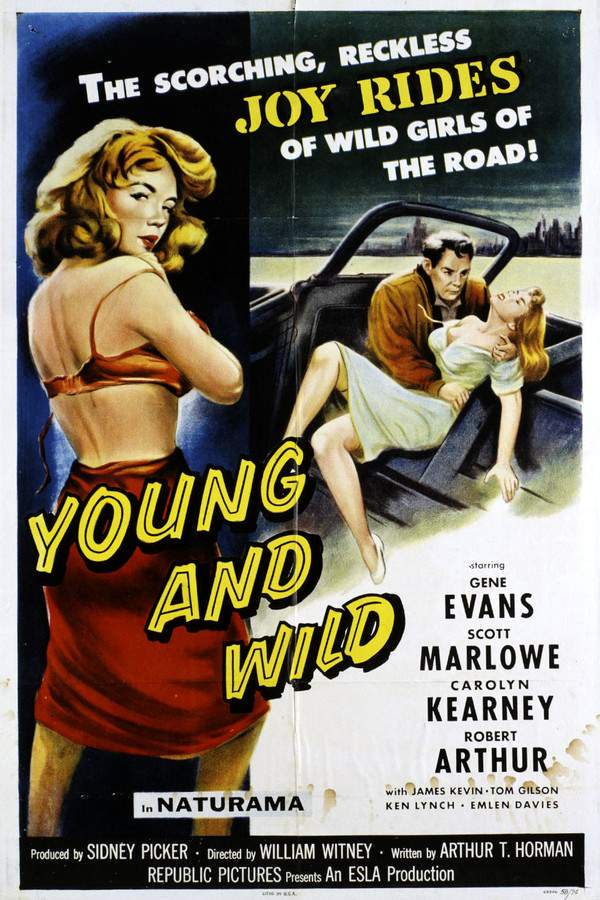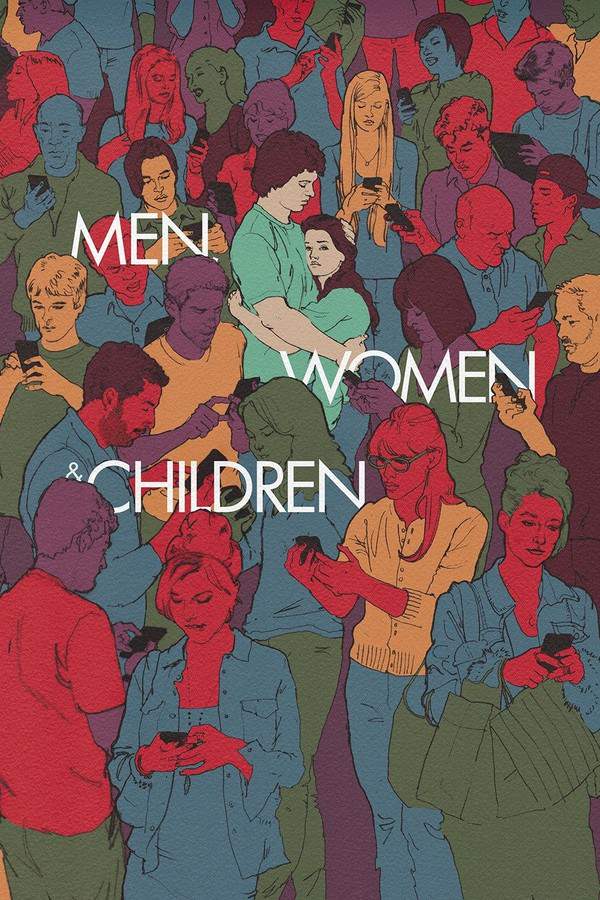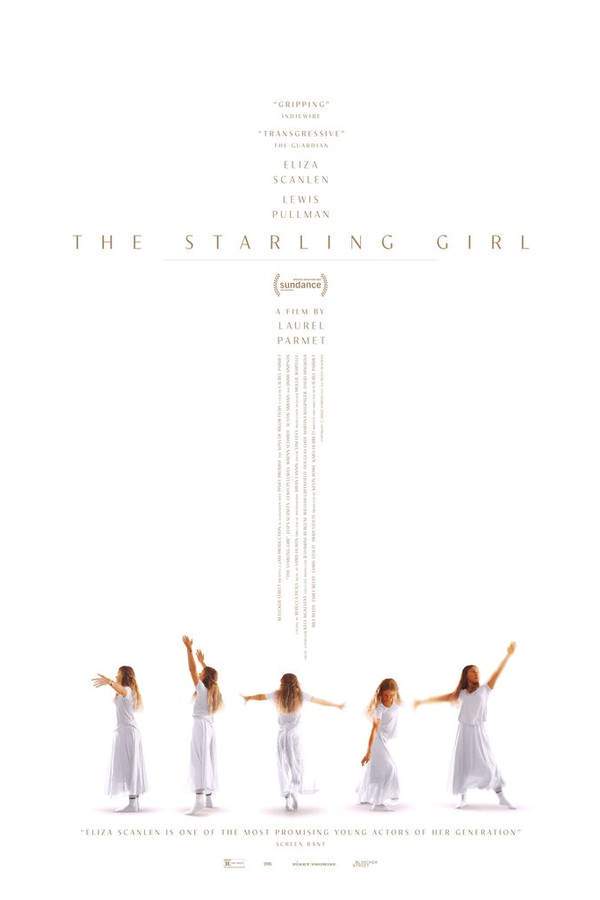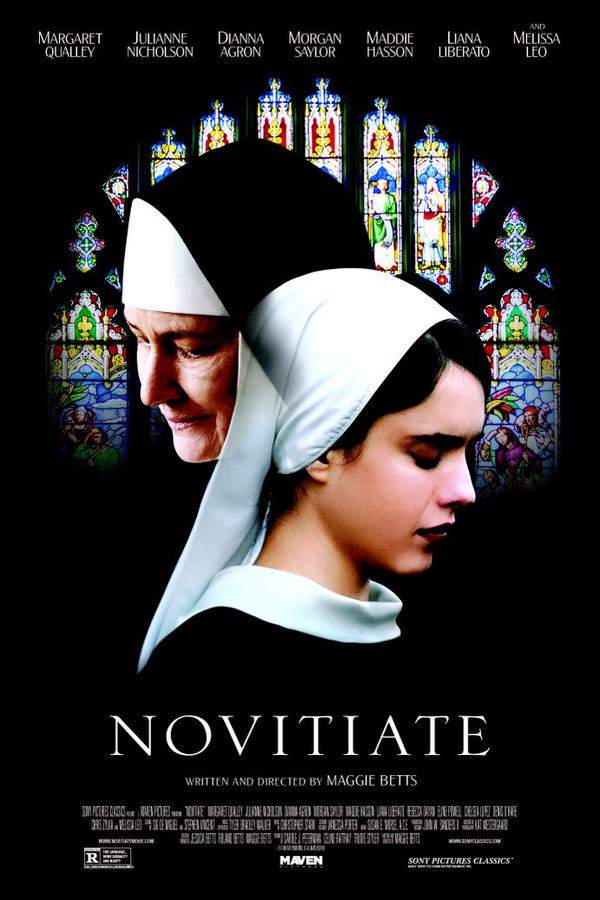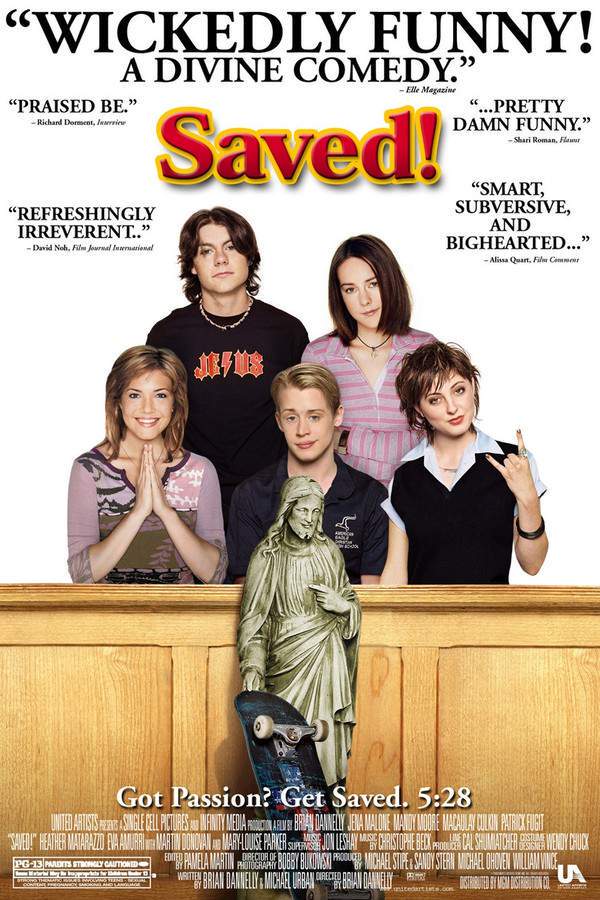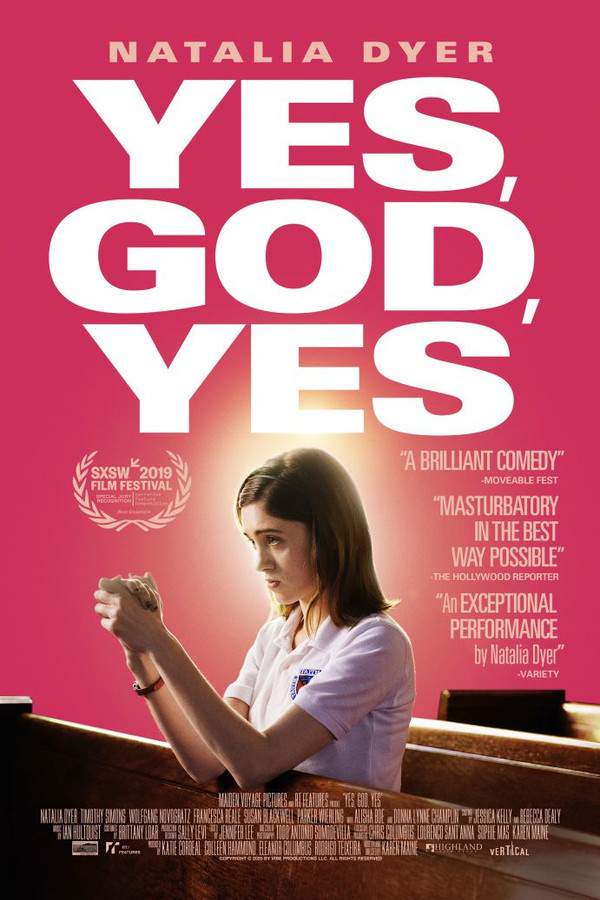
Yes, God, Yes 2020
Directed by

Karen Maine
Made by

Vertical Entertainment
Test your knowledge of Yes, God, Yes with our quiz!
Yes, God, Yes Plot Summary
Read the complete plot summary and ending explained for Yes, God, Yes (2020). From turning points to emotional moments, uncover what really happened and why it matters.
Alice, a curious junior at a strict Midwestern co-ed Catholic high school, navigates the complexities of her burgeoning sexual feelings during the fall of 2000. Guided by the moral teachings of Father Murphy, who instructs her class that any sexual activity outside of procreation within a heterosexual marriage is a grave sin, she grapples with feelings of guilt and shame instilled in her by both him and her best friend, Laura.
The rumor mill begins to churn when whispers circulate at school that Alice has “tossed the salad” of a classmate named Wade, stemming from a party over the weekend. Alice, bewildered and unaware of the term’s meaning, vehemently denies the claims. Yet the gossip reaches Mrs. Veda, resulting in Alice being barred from serving at Mass. In a moment of self-reflection during sacrament reconciliation, she confesses her minor sins to Father Murphy and receives a light penance of twenty prayers, which she diligently completes in the chapel—a futile attempt to silence the echo of condemnation regarding her desires.
Alice and Laura decide to attend the school’s “Kirkos” retreat, each with their own motivations; Alice seeks redemption, while Laura desires acceptance from the popular senior, Nina. Upon arriving at the retreat, Laura is thrilled to discover that Nina is a leader, while Alice develops an innocent crush on Chris, another attractive senior retreat leader. Their connection grows as they bond over shared experiences and interests, reminding Alice of her complex feelings.
On the second day of retreat activities, in an attempt to draw closer to Chris, Alice pretends to sustain an injury during a hike. However, when Nina finds Alice’s cellphone, she confiscates it, leading to a punishment of chores assigned by Father Murphy. In a moment of curiosity mixed with desperation to understand her situation, Alice sneaks into Father Murphy’s office and attempts to seek clarity through an AOL chat room about what “tossing salad” actually entails, but she quickly exits as impending footsteps approach.
On the third day, Father Murphy announces that he has discovered an explicit chat on his computer, leaving the students in a state of tension. As he pressures Alice to confess her supposed misdeeds involving Wade, she struggles against both the rumor and his authority. Confronting Wade about the gossip, she is met with silence rather than accountability, further deepening her isolation.
Later, Alice witnesses an intimate encounter between Nina and another senior, prompting her to confide in Laura, who dismisses Alice’s story and accuses her of deceit. Feeling betrayed, Alice retaliates by framing Wade for the computer incident, but her actions lead to an unintended and shocking discovery: she finds Father Murphy engaged in a compromising act to explicit content on his computer.
After a fleeting romantic encounter with Chris, which leaves him visibly panicked, Alice escapes from the retreat and unexpectedly discovers a local lesbian bar. There, she finds solace and empathy from Gina, the bar owner, who offers profound insights into the complexities of adolescent sexual identity and urges Alice to embrace her curiosity about life beyond the confines of her current environment.
As the retreat comes to an end, Alice forges a new friendship with a shy classmate, while Wade faces the consequences of his earlier actions. During a group sharing session, Alice, taking a stand for honesty, reminds her peers that everyone carries hidden burdens, advocating for understanding and compassion—a reflection of the very teachings she has tried to internalize.
Upon returning to school, Alice engages in a candid conversation with a still-reserved Chris, indicating her desire to take their relationship at a slower pace. When she meets with Father Murphy once more, she gathers the courage to reveal that she had seen a video depicting sexual activity during the retreat. Despite the weight of her confession, they both sidestep discussing its underlying implications. Ultimately, Alice receives a more severe penance of one hundred prayers but chooses to indulge her curiosity instead, opting to explore her desires in private by rewatching a particular scene from Titanic.
Yes, God, Yes Timeline
Follow the complete movie timeline of Yes, God, Yes (2020) with every major event in chronological order. Great for understanding complex plots and story progression.
Alice's Struggles with Sexual Feelings
In the fall of 2000, Alice, a junior at a Catholic high school, begins to explore her burgeoning sexual feelings. She encounters guilt and shame instilled by her morality-focused environment, particularly through the teachings of Father Murphy.
Rumors Begin to Spread
Following a party over the weekend, rumors start circulating that Alice has engaged in an intimate act with a classmate named Wade, described by the euphemism 'tossed the salad.' Confused and unaware of the term’s meaning, Alice vehemently denies the claims, but the gossip escalates.
Consequences of Gossip
The false rumors reach Mrs. Veda, the school authority, resulting in Alice being barred from serving at Mass. The situation adds to Alice's feelings of shame and isolation as she seeks solace in her faith.
Self-Reflection and Confession
During sacrament reconciliation, Alice confesses her minor sins to Father Murphy. He assigns her a penance of twenty prayers, which she completes in the chapel, aiming to alleviate her guilt regarding her emerging desires.
The Kirkos Retreat
Alice and her friend Laura attend the school's Kirkos retreat, each with distinct motivations. Alice seeks redemption for her perceived sins, while Laura wishes to impress the popular senior Nina, who is leading the retreat.
Developing a Crush
At the retreat, Alice finds herself developing a crush on Chris, a senior retreat leader. They connect over shared interests, which sparks Alice's complicated feelings about love and attraction.
Punishment for Distraction
In an attempt to get closer to Chris, Alice pretends to injure herself during a hike, but her distraction leads to trouble. Nina confiscates Alice's cellphone, resulting in chores assigned by Father Murphy as part of her punishment.
Search for Clarity
Out of curiosity and desperation to understand the gossip surrounding her, Alice sneaks into Father Murphy's office. She logs into an AOL chat room to investigate the term 'tossing salad,' but hastily leaves when footsteps betray her presence.
Father Murphy's Revelation
During the retreat's third day, Father Murphy reveals he has discovered an explicit chat on his computer, raising tensions among the students. He pressures Alice to confess her involvement with Wade, intensifying her feelings of confusion and helplessness.
Intimacy and Betrayal
After witnessing a private moment between Nina and another senior, Alice seeks advice from Laura. However, Laura dismisses Alice's concerns and accuses her of lying, further straining their friendship and leaving Alice feeling more isolated.
Framing Wade for the Computer Incident
Feeling betrayed by her friend Laura, Alice decides to frame Wade for the explicit content incident involving Father Murphy’s computer. This act of retaliation leads to an unexpected discovery about Father Murphy, deepening Alice’s turmoil.
Discovery at the Gay Bar
After a brief romantic encounter with Chris that leaves both feeling confused, Alice escapes from the retreat. She stumbles upon a local lesbian bar, where Gina, the owner, offers her insights on adolescent sexual identity and encourages her to embrace her curiosity.
A New Friendship
As the retreat concludes, Alice forges a friendship with a shy classmate, symbolizing her efforts to connect despite the chaos around her. This moment highlights her growth and desire for deeper connections.
Alice's Stand for Honesty
During a group sharing session at the retreat, Alice bravely encourages her peers to be honest about their struggles. Her call for understanding serves as a moment of reflection on their shared human experience and the burdens they carry.
Confronting Father Murphy
Back at school, Alice finally gathers the courage to face Father Murphy about her discovery of the explicit video content. Their conversation skirts around the gravitas of the situation, culminating in a heavier penance of one hundred prayers for Alice, who ultimately decides to explore her desires privately.
Yes, God, Yes Characters
Explore all characters from Yes, God, Yes (2020). Get detailed profiles with their roles, arcs, and key relationships explained.
Alice
Alice is a curious and introspective junior navigating the complexities of her burgeoning sexuality in a restrictive environment. Her internal struggle is exacerbated by the strict moral teachings of her school and the pressures from her peers. Throughout the narrative, Alice transforms from a passive participant in her life to someone who actively seeks to understand her desires and stand up for herself.
Father Murphy
Father Murphy represents the authoritative voice of the Catholic Church, instilling guilt and shame in Alice as he upholds strict teachings regarding sexuality. His character embodies the conflict between religious doctrine and the complexities of adolescent desires. Despite his authoritative role, his actions later in the film reveal hypocrisy, challenging his influence over Alice.
Nina
Nina is a confident and charismatic senior who becomes a source of admiration for Alice. As a retreat leader, she embodies the allure of acceptance and popularity, yet her complexities reveal a more nuanced character. Her interactions with Alice challenge the notion of friendship, introducing themes of betrayal and the quest for validation among peers.
Laura
Laura is Alice's best friend, whose desire for social acceptance often conflicts with her support for Alice. While she seeks out popularity and validation, her reaction to Alice's struggles reflects the tensions in female friendships during adolescence. Laura's dismissal of Alice's feelings adds layers to the theme of betrayal in the film.
Chris
Chris is an attractive senior retreat leader who captures Alice's interest and symbolizes her exploration of romantic feelings. His laid-back demeanor and genuine connection with Alice highlight the innocence of young love amidst the chaos of their retreat experiences. Their budding relationship serves as a pivotal point for Alice's growth in understanding her individuality.
Yes, God, Yes Settings
Learn where and when Yes, God, Yes (2020) takes place. Explore the film’s settings, era, and how they shape the narrative.
Time period
Fall of 2000
Set during the fall of 2000, this time period is characterized by a transitional phase in societal attitudes towards sexuality and identity. The cultural climate reflects a struggle between conservative values and the expanding conversations around sexual freedom. This juxtaposition plays a crucial role in Alice's internal conflict as she grapples with her desires amid the strict teachings of her faith.
Location
Midwestern Catholic high school, Local lesbian bar
The story primarily takes place in a strict Midwestern co-ed Catholic high school, known for its rigorous moral teachings and adherence to traditional values. This backdrop creates a tension-filled environment for Alice as she navigates her burgeoning sexual feelings. Additionally, a local lesbian bar serves as a contrast to the school's constraints, offering a sanctuary for Alice where she can explore her identity and receive support.
Yes, God, Yes Themes
Discover the main themes in Yes, God, Yes (2020). Analyze the deeper meanings, emotional layers, and social commentary behind the film.
🕊️
Identity
The theme of identity is central to Alice's journey as she explores her sexuality and navigates the complexities of her feelings. Throughout the movie, Alice grapples with societal expectations, religious teachings, and her own desires, leading her to a deeper understanding of herself. The narrative highlights the struggle for self-acceptance in an environment that imposes strict norms.
💔
Betrayal
Betrayal emerges as a significant theme, illustrated through Alice's relationships with her peers and the authority figures in her life. The spreading of rumors and her friends' reactions create a sense of isolation, while her confrontation with [Wade] illustrates the real consequences of deceit. Ultimately, this theme underscores the importance of honesty and understanding in relationships.
🙏
Redemption
Alice's quest for redemption drives her actions throughout the film. Initially seeking forgiveness and guidance, she comes to realize that self-discovery is equally important. This theme is intricately linked to her experiences at the retreat, where she learns to stand up for herself and embrace her desires, thus finding a sense of personal liberation amidst the constraints imposed on her.

Coming soon on iOS and Android
The Plot Explained Mobile App
From blockbusters to hidden gems — dive into movie stories anytime, anywhere. Save your favorites, discover plots faster, and never miss a twist again.
Sign up to be the first to know when we launch. Your email stays private — always.
Yes, God, Yes Spoiler-Free Summary
Discover the spoiler-free summary of Yes, God, Yes (2020). Get a concise overview without any spoilers.
In the quiet suburbs of the American Midwest, a small Catholic high school holds tight to tradition, its hallways echoed by the cadence of hymns and the strict moral guidance of its clergy. Within this insulated world, Alice wrestles with the familiar rhythm of classes, confessions, and the ever‑present sense that any deviation from the prescribed path is a transgression. The film captures the tension between the comforting predictability of ritual and the restless curiosity that simmers beneath the surface of a young woman’s faith.
When a chance encounter on an online chat room introduces a voice that is both enigmatic and alluring, Alice finds herself drawn into a digital space where the rules she knows no longer apply. The anonymity of the internet offers a tantalizing glimpse of possibilities that clash with the doctrines she has internalized, prompting a quiet but urgent internal dialogue. The tone balances a gentle, almost reverent reverence for the rituals of her upbringing with a wry, contemporary humor that highlights the absurdities of trying to reconcile ancient teachings with modern desires.
The story unfolds as a coming‑of‑age portrait that is both specific to its early‑2000s setting—complete with AOL instant messages and the glow of computer screens—and universal in its exploration of identity, yearning, and the fear of judgment. Supporting characters, from earnest friends to well‑meaning teachers, orbit Alice like constellations, each reflecting a different facet of the expectations placed upon her. Their interactions hint at the larger community’s influence while leaving ample room for the protagonist’s personal journey to take center stage.
Through its warm, introspective lens, the film invites viewers to contemplate what happens when deeply held convictions meet the bewildering allure of the unknown. It asks whether faith must be rigid or can evolve, and it gently suggests that the path to self‑understanding often begins with a single, courageous step into the uncharted—whether that step is taken in a chapel, a classroom, or the flickering light of a computer screen.
Can’t find your movie? Request a summary here.
Movies with Similar Twists and Themes
Uncover films that echo the narrative beats, emotional arcs, or dramatic twists of the one you're exploring. These recommendations are handpicked based on story depth, thematic resonance, and spoiler-worthy moments — perfect for fans who crave more of the same intrigue.
Featured on this page

What's After the Movie?
Not sure whether to stay after the credits? Find out!
Explore Our Movie Platform
New Movie Releases (2025)
Famous Movie Actors
Top Film Production Studios
Movie Plot Summaries & Endings
Major Movie Awards & Winners
Best Concert Films & Music Documentaries
Movie Collections and Curated Lists
© 2025 What's After the Movie. All rights reserved.


